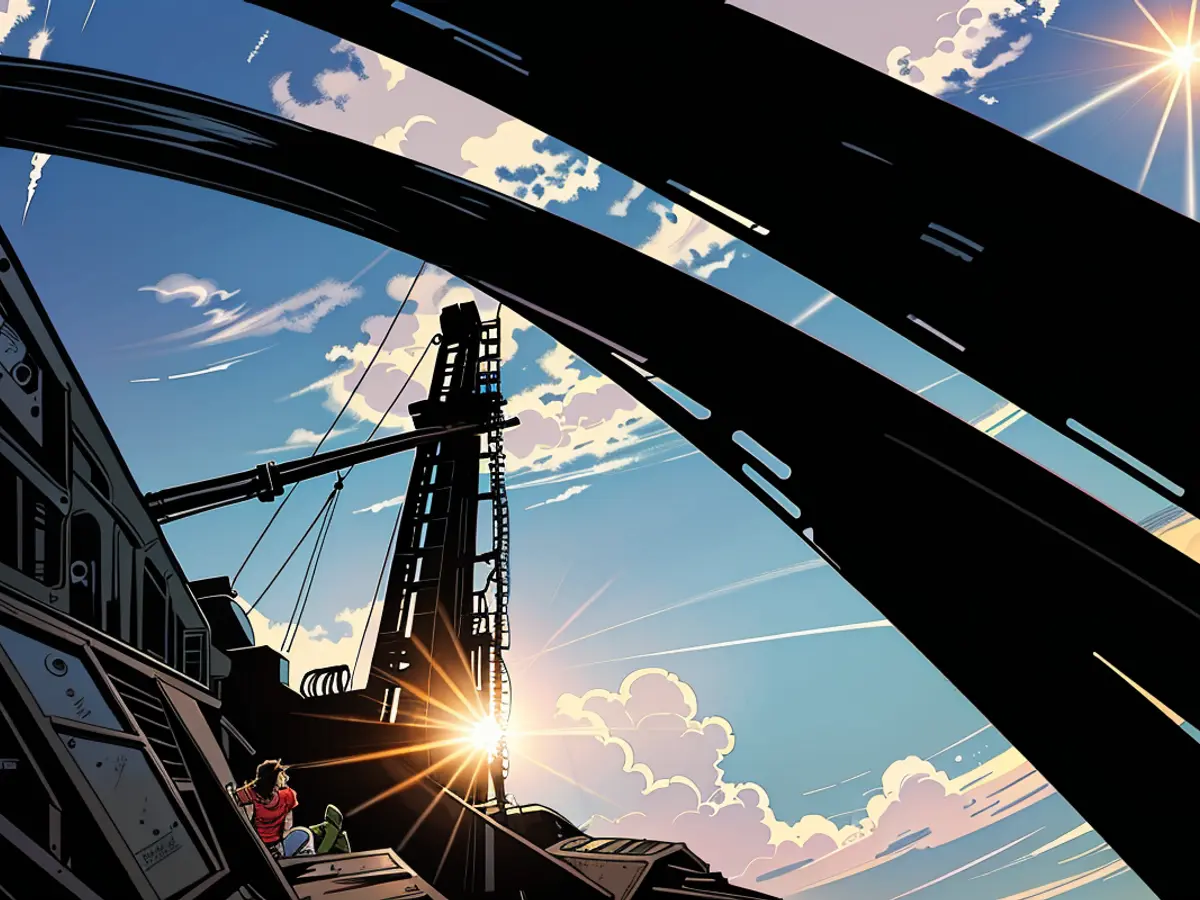Potassium-rich fertilizer created from evaporating salt lake water. - The mining project in Thuringia continues to advance.
In Thuringia, the Bernterode-Schacht is being considered as a potential site for a new potash mine following a comprehensive suitability test. The production facilities for potash fertilizers will likely be situated within an industrial area in Leinefeld, also in Thuringia, as revealed by the State Administration Office in Weimar. Kali Südharz GmbH, the potash mining developer, aims to resume potash extraction for fertilizer production that was previously halted in the northern part of Thuringia following reunification. The successful completion of the spatial suitability test signifies another step towards the establishment of a new potash mine.
Kali Südharz GmbH had provided four options for the spatial suitability test. While Leinefelde was not its preferred option, the company had initially planned to employ the Bernterode railway station for the mining process and logistics.
The Weimar authority explained that the deciding factor was that Bernterode's existing facilities did not conform to the rural settlement structure. Leinefeld-RIG offers far more suitable conditions in this regard.
The Spatial Suitability Test's outcome has been made public on the internet by the State Administration Office. This reveals that the company needs to adhere to several stipulations at the Bernterode site, including distance from residential buildings, the height of the facilities, and the integration of a storage facility into the landscape.
A total of 40 public interests were considered in the suitability test, with affected municipalities, districts, authorities, and associations submitting 26 statements. About 1,500 citizens partook in the opportunities for public participation, while another 2,000 residents endorsed petitions. Criticism centered largely on environmental interference, nature conservation, and specifically, the landscape. The Bernterode region is particularly contentious regarding the project.
The Thuringian Association for Environment and Nature Protection (BUND) advocated against potash mining, urging for its abandonment. The extraction was thought to consume approximately 75 cubic meters of water every hour, potentially harming the local ecosystem significantly. The BUND and locals had also protested together.
Potash, primarily used for fertilizer production, has a rich history in many northern Thuringian areas. Having undergone successful test drillings by Südharz Kali GmbH, there's a renewed possibility of restoring the potash mining tradition.
The potash project has faced criticism, particularly in relation to potential environmental consequences. Water consumption of up to 75 cubic meters per hour non-stop is expected to have a detrimental impact on the local environment. Some citizens, alongside the Thuringian Association for Environment and Nature Protection (BUND), have called for the abandonment of potash mining, citing environmental concerns as their primary motivation.
Read also:
- The potash mining project in Northern Thuringia, specifically in Eichsfeld, has potential, as indicated by the successful test drillings conducted by Südharz Kali GmbH.
- The new potash mine, if established in Thuringia, could potentially be located in Bernterode-Schacht, as the company is considering it following a comprehensive suitability test.
- The State Administration Office in Weimar has suggested that the production facilities for potash fertilizers would likely be situated in an industrial area in Leinefeld, due to its suitable conditions for mining operations.
- Kali Südharz GmbH had initially planned to utilize the Bernterode railway station for the potash mining process and logistics, but the rural settlement structure did not conform to the existing facilities, leading to a shift to Leinefelde-RIG as a more suitable location.








